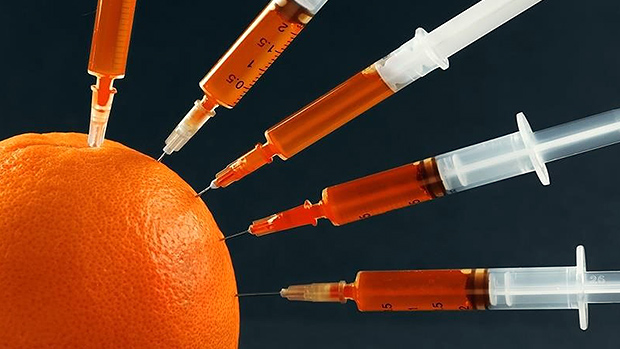- Messages
- 2,405
- Reaction score
- 1,432
- Points
- 113
There's a halo of health around them, but are natural flavors any better than artificial flavors? You may be surprised.

Sure, we get it. You abhor "artificial" ingredients. You only drink water scooped out of virgin springs by young Amish women and stored in jugs made from organic quinoa husks.
Everything you own is made of un-dyed hemp. No matter that your hemp toaster oven nearly catches fire every time you make organic Eggos or your wife is covered in hives from her scratchy hemp nightie, you're in it for the long haul.
And it goes without saying that everything you eat has to be made with "natural" flavorings. Great. So can we assume you're a fan of castoreum? It's a natural ingredient that comes from the fluid that fills the sex glands of beavers. It's used to flavor candies, drinks, and desserts, including ice cream.

It's better than artificial ingredients because it's natural, right? Get real.
What the Heck is Natural Anyhow?
This is how the Code of Federal Regulations defines a natural flavor:"The essential oil, oleoresin, essences or extractive, protein hydrolysate distillate, or any product of roasting, heating or enzymolysis, which contains the flavoring constituents derived from a spice, fruit or fruit juice, vegetable or vegetable juice, edible yeast, herb, bark, bud, root, leaf or similar plant material, meat, seafood, poultry, eggs, dairy products, or fermentation products thereof, whose significant function in food is flavoring rather than nutritional."
That lawyerly explanation is pretty all encompassing, but the reality of "natural" flavoring is even more intricate and a lot more devious.
Artificial Flavors Are Safer
Just because something is labeled "natural" doesn't mean some underpaid worker is zesting orange peels into your Fanta soda.What it does mean is that sure, the flavor was found in nature. It was then extracted, enhanced, and added to the food or drink in question, but along the way, the natural flavor may have picked up anywhere from 50 to 100 ingredients – some natural and some artificial – including solvents and preservatives that might make up 80 to 90% of the flavoring.
The inconvenient truth is that the molecules in an artificial flavor might be better than natural ones. For one thing, they're identical to those in the natural flavoring, only they were synthesized in a lab.
Ironically, it's even possible that artificial flavorings are safer than natural versions because artificial flavors are actually simpler in composition and were made using only safety-tested components.
Mother Earth Prefers Artificial
Artificial flavorings might also be more environmentally safe because companies sometimes have to go to great lengths to obtain natural flavors because there often aren't enough of them to go around.Say for instance they used all the grapes to make natural flavoring. They wouldn't have any left over to make their hoity-toity pinot noir and wine snobs everywhere would retaliate by refusing to eat their brie.
That means that companies sometimes resort to the occasional clear-cutting of a forest so there's more acreage to grow more mangos, or whatever natural flavoring they're short of.
So Why Not Use Artificial Every Time?
It'd be a lot easier to use artificial ingredients in all foods, but marketers like using the word "natural" because it conveys an aura of health. This aura also allows them to charge more.Nutritionally, though, natural flavors are almost never any better than artificial ingredients. Likewise, they're not any safer, either. Besides, most people would probably rather eat synthesized anal-gland extract than stuff harvested directly from the beaver's business.

